Table of Contents
Geology studies the Earth’s materials, its structure and the processes that act on it. It includes studying species that have lived on our planet in the past. It studies how the Earth’s materials, structures, processes, and species have evolved.
Working as a geologist may be ideal if you are interested in Earth science and nature. This blog post will answer the question, “What do geologists do?”
Let’s get some facts on geology, such as
How much do geologists make?
What exactly do geologists do?
What kinds of occupations are available for geologists?
Let’s explore because a geology career path is always flexible.
What is a geologist?
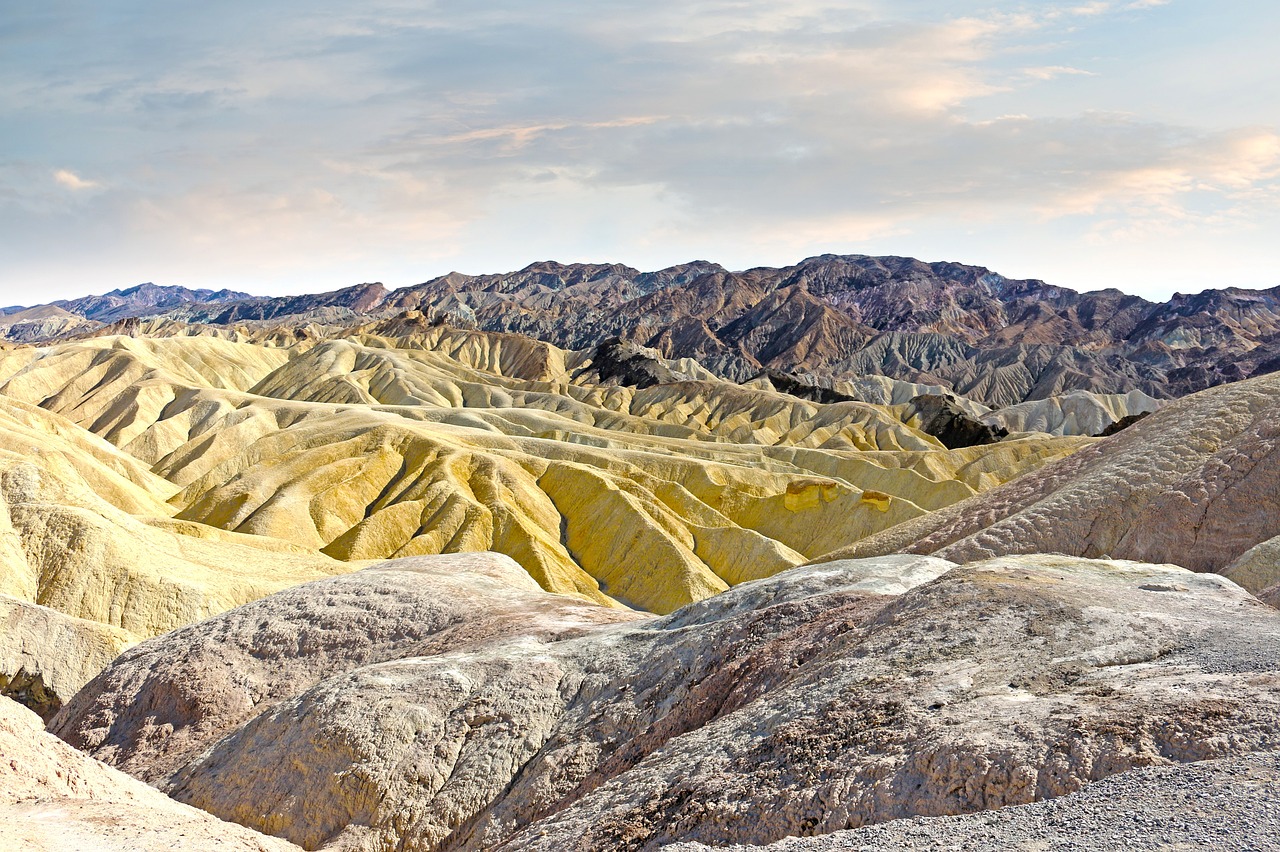
Geologists are scientists who study the Earth’s land and materials. They investigate how rocks and minerals originate, change, and degrade through time, but they also examine natural resources such as gases, oil, and water.
Geologists study the Earth’s structure, composition, processes, history, and organisms. This enables them to understand natural disasters, environmental conditions, and the quantity and quality of natural resources available for human consumption.
People use minerals to create and power various products and buildings, including phones, computers, automobiles, batteries, homes, and highways. A geologist may study the following materials:
- Mountainous terrain
- Precious metals
- Fossils
- Molten rock
- Ocean and seafloor sediments
- Moonrock
- Geodes and gemstones
- Petroleum
What do geologists do?
What do geologists do: A geologist tries to learn about the history of our planet, make better predictions, and figure out why things happen the way they do now. Geologists are also hired to look at the land and make safe building plans.
A general geologist studies mineralogy, mapping petrology, economic geology, and petroleum geology. Geological mapping records geological features, like the patterns and locations of rocks, on a map.
All branches of geology provide extremely helpful information for knowing the Earth and its inhabitants. A geologist may research and map rock formations, gather rock samples and fossils, or measure the physical qualities of the Earth, depending on his or her speciality in geology. These studies aid geologists interpret active geological processes over the past several million years of Earth’s history.
What do geologists do? Types of Geologists:
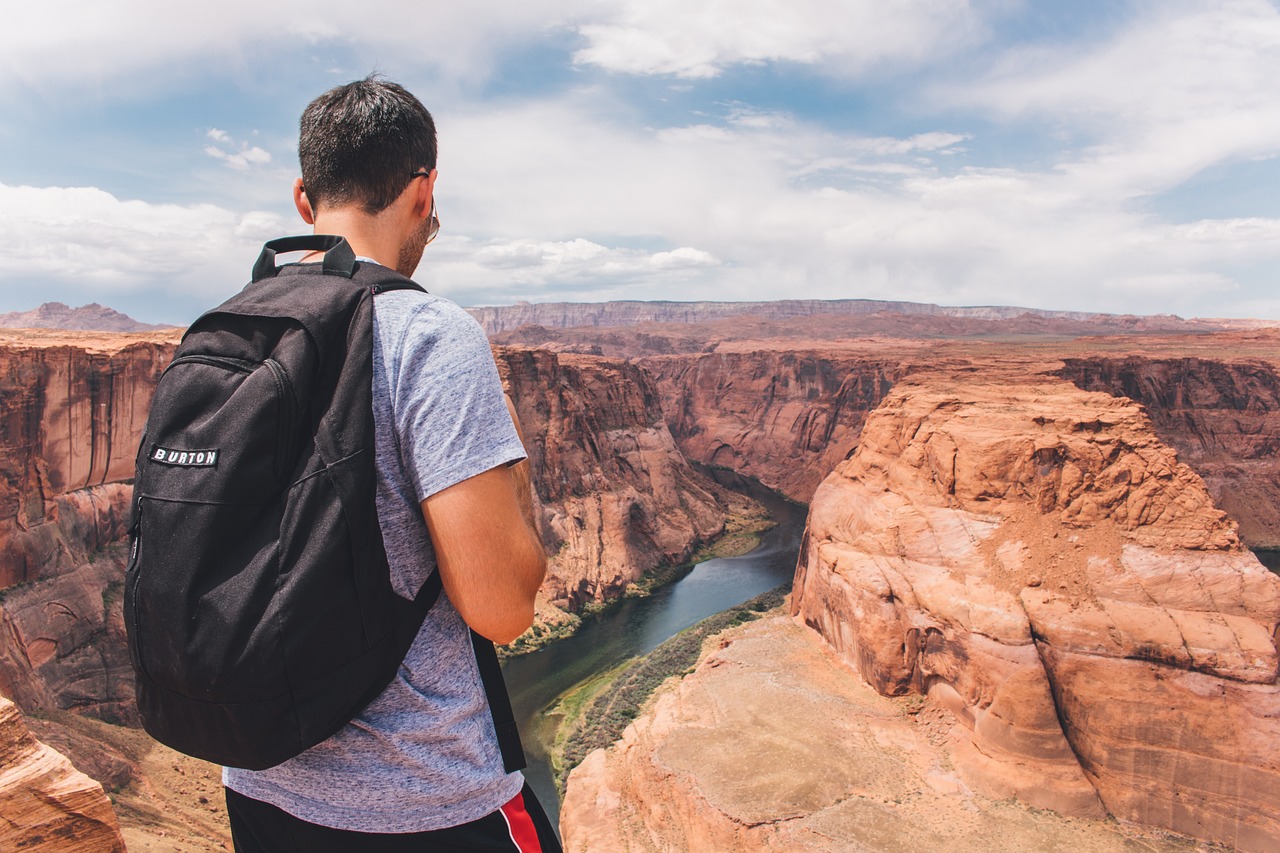
1. Environmental Geologist
Environmental geologists investigate and observe flooding, erosion, earthquakes, pollution, and natural hazards to solve environmental issues. They primarily focus on studying and comprehending the Earth and human interactions with the land to foresee any geological concerns and environmental impacts caused by urban and industrial expansion. Their study and work are critical to successfully reducing the harmful effects of growth.
Duties for environmental geologists may involve:
- Collecting soil, sediment, rock, and core samples.
- Conducting surveys.
- Studying the effects of erosion and sedimentation.
- Taking notes on reports, geochemical surveys, images, and maps.
2. Engineering Geologist
Engineering geologists can assist private and public companies on environmental and geological issues related to real estate development by determining if the ground rock is solid and safe enough to build on.
A geologist studying rocks and soil’s physical and chemical properties is an engineering geologist. This knowledge is applied to constructing bridges, dams, structures, highways, and tunnels in structurally sound locations at a low cost. Civil engineering skills are also essential for the city planning section.
3. Marine Geologist
What do marine geologists do? Marine geologists study the processes that shape the landform beneath the ocean (such as earthquakes, plate tectonics, and volcanic activity). The ocean floor, beaches, estuaries, coastal river basins, big lakes, and shallow slopes/shelves encircling the continents are all included.
Marine geologists are more interested in the outcomes of geology than the causes. They focus on how geology, marine biology, and oceanography work together because the ocean floor is still mostly unknown.
It is critical to our economy to study and preserve the health of our coastal and offshore resources. There is a significant amount of natural gas and oil beneath our oceans, and the expertise and new technology brought to the table by marine geologists are critical as we approach peak oil.
4. Planetary Geologist
What do planetary geologists do? Planetary geology studies the planets’ and moons’ geology, asteroids, comets, and meteorites. Planetary geologists study the composition of the Solar System’s little worlds, planetary volcanism, impact craters, the internal structure of the moon, and the formation of planets such as Pluto, Saturn, and Jupiter.
Planetary geology is closely related to terrestrial geology because it applies geological knowledge to other planetary bodies. Planetary geologists can begin understanding other planets’ climates, history, and terrain by working with specimens collected from space missions or studying images.
5. Economic Geologist
What do Economic geologists do? Economic geology is a branch that examines how things like precious and base metals, nonmetallic minerals, petroleum minerals, construction-grade stone, coal, and water are extracted from the Earth for economic and industrial purposes.
Economic potential refers to things that are valuable or may be in the future. These things are usually called mineral resources (they include minerals, oil, gas, and ore deposits).
Most things we use daily, like computers and plastics, are made from raw materials from the Earth’s natural resources. It is believed that there will be more than 9 billion people on Earth by 2050.
More people means more natural resources. The main job of an economic geologist is to find valuable deposits of oil, gas, and minerals and figure out how to get them out. Economic geologists continue to find new mineral resources and learn more about the ones they already know.
6. Petroleum Geologist
A petroleum geologist is involved in the identification of potential oil deposits, the discovery of oil, and the production of oil. They are relied upon to investigate ocean sediment deposits, geological folds, and faults.
They also select drilling locations by locating potential within a sedimentary basin. This can be an arduous task requiring specialized equipment to examine sedimentary and structural factors to find potential oil traps.
Petroleum geologists decide if a prospect is worth pursuing by looking for: a source rock that can make hydrocarbons; porous rock reservoirs that are sealed and collect hydrocarbons in a trap; traps that are formed in a certain geological order; organic matter that breaks down into gas and oil when heated and pressed; and the movement of gas and oil from the source rock to the reservoir rock to the trap.
Geophysical surveys and the mudlogger, who looks at the drill cuttings and the thickness of the rock formations, are two ways to get data.
7. Geomorphologist
Geomorphologists study how streams, landslides, glaciers, and the wind shape or change the surface of the Earth. Geomorphologists are also interested in things like volcanoes, earthquakes, and tsunamis. Landforms are made when rock and sediment are worn away and moved to different places (either by erosion or deposition).
Geomorphologists can learn more about how and why landforms and landscapes form by studying, writing down, and making maps of how air, water, and ice have changed them. Particles and organic matter, like diatoms and macrofossils preserved in sediments and peat, can often tell us something about how the climate changed and what happened in the past.
Geomorphologists can study the shape of volcanoes and tectonic plates, deserts, glaciers, the area around glaciers, or even the shape of planets.
8. Geophysicist
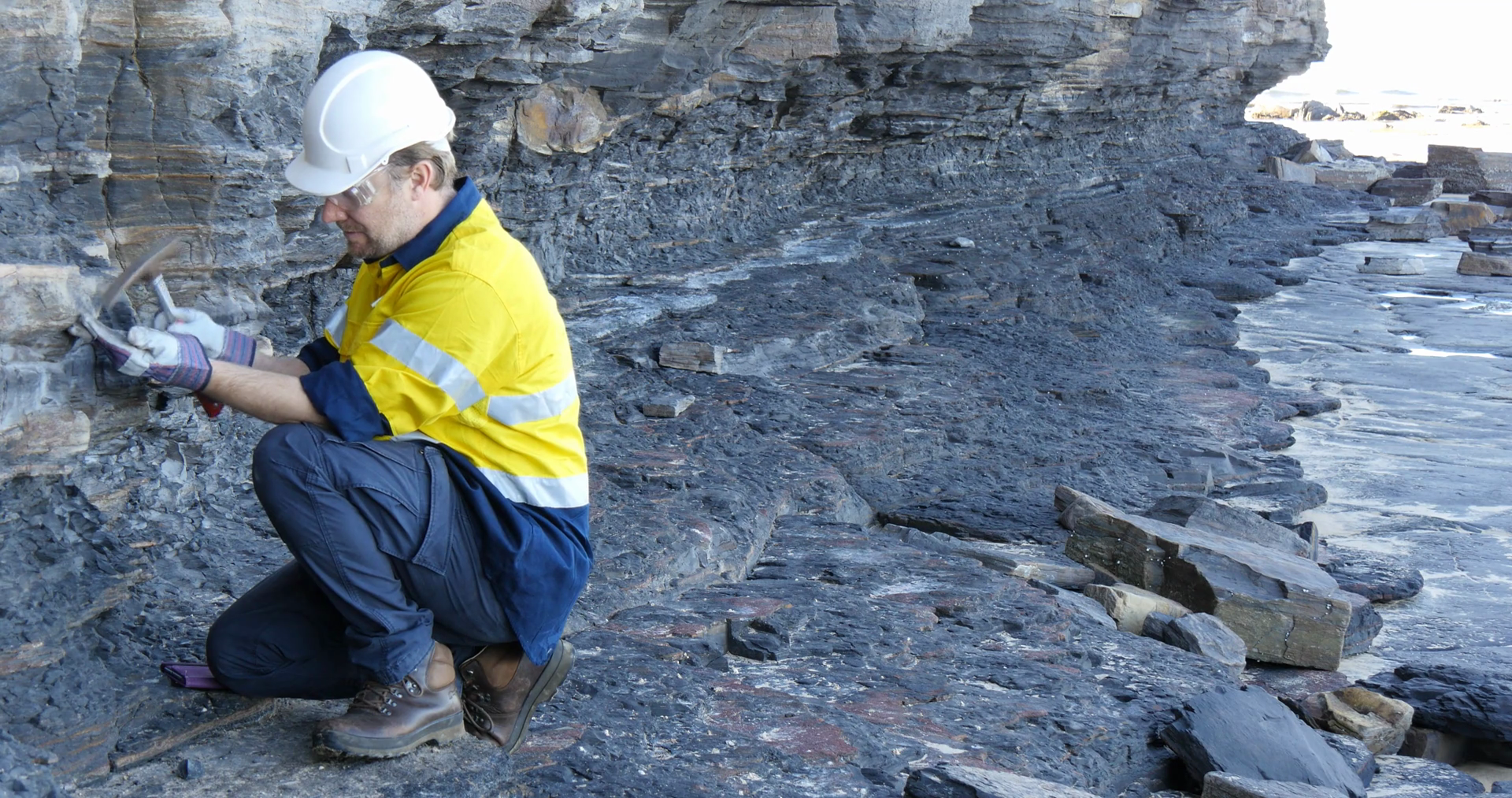
Geophysicists use gravity, magnetic, electrical, and seismic technologies to investigate the Earth. Research geophysicists use these approaches to study the Earth’s interior structure, earthquakes, the ocean, and other physical aspects. Some geophysicists investigate the Earth’s properties for environmental dangers and examine potential development locations.
Geophysicists study how the planet works from the inside out. They focus on the physical and hydrodynamic properties of the Earth’s materials to learn more about how the continents formed and what happened as a result (earthquakes, etc.).
Geophysicists also look for oil, iron, copper, and other mineral deposits formed by the Earth’s movement and compression of elements.
9. Geohydrologist
Geohydrologists study the shape and location of underground water reservoirs, how much water they can hold, and how water moves through them. More crucially, geohydrologists study the cycles of removing water from reservoirs for human consumption and replenishing through precipitation.
10. Paleontologist
A palaeontologist, a type of geologist, uses fossil records to make inferences about ancestral climates and environmental circumstances. These experts, who examine accumulated layers of rock and soil for clues about prehistoric times, have helped us learn much more about the past Earth. A palaeontologist studies evolutionary biology, discovering what causes species to become extinct and what causes species to evolve.
What do geologists do? Examples of roles and responsibilities:
Mapping and Fieldwork
Field mapping is creating a geological map by investigating rock kinds, geological features, and their relationships.
Geotechnical mapping is used to assess the characteristics and stability of rock areas to determine their feasibility for construction or modification, such as tunnel construction.
Logging
Rock core logging, also known as rock chip logging, is used by mining and exploration companies.
Mud logging is used to look for oil and gas.
Geotechnical logging is used to determine how strong or weak rocks are and to find cracks.
Laboratory Work
In the area of geology, lab work is vital. Some geoscientists only work for huge commercial laboratories that analyze data for mining, oil and gas, engineering, and environmental firms.
Microscopic analysis is the examination of tiny details in rocks and fossils.
Geochemical analysis reveals details regarding materials, such as metal concentration or oil quality.
The geomechanical analysis consists of testing and revealing the strength of rocks.
Computer-Based Work
Geographical Information Systems (GIS) enable geologists to do field mapping on their computers by creating a digital database of obtained field data.
Modelling programs have become important tools for geologists in the scientific and commercial sectors. Geologists develop modelling programs for geological processes, often for research purposes, creating a 3D model of an oil field, mineral deposit, or aquifer (an underground layer of water-bearing permeable rock); and modelling the subsurface geology that an engineering project will alter.
Report Writing
Geology reports can range from daily site updates to multi-thousand-page papers assessing possible exploration projects’ economic and environmental consequences.
Why is geology important?
Geologists help societies understand their environment. Those in this position examine numerous environments, such as tropical rainforests, deserts, and polar regions, assisting humans in adapting to extreme or moderate environmental conditions. They also learn about climate change and offer solutions for people to safeguard ecosystems and living organisms.
Geologists can predict future catastrophes and develop suitable building plans to keep people safe since they research natural dangers such as floods, rock falls, and hurricanes. They also understand how to preserve the Earth’s resources, such as water and minerals.
Geology is a technique to learn about the Earth’s and humans’ histories. Some geologists study fossils and physical remains in collaboration with archaeologists and anthropologists to learn about plate tectonics, prehistoric ages, dinosaurs, evolution, and ancient civilizations. By examining the soil, researchers can learn about former cultures’ daily lives and activities, particularly how they interacted with their surroundings.
Geology as a Career
Geology can be a fascinating and fulfilling profession. A four-year college degree in geology is the bare minimum. Pre-college students who want to be geologists should complete full coursework of college preparatory courses, particularly those in math, science, and writing. Computer, geography, and communication courses are also beneficial.
Geologists work in a wide range of environments; natural resource corporations, environmental consulting firms, government agencies, non-profit groups, and colleges are among them. Many geologists work in the field at least part of the time. Others work in laboratories, classrooms, or offices. Geologists all write reports, perform calculations, and utilize computers.
While a bachelor’s degree is essential for entry-level positions, many geologists pursue master’s and doctorate degrees. Geologists with advanced degrees get more training, usually in a specialized area of geology like fossils, mineralogy, hydrology, or volcanology. Advanced degrees may qualify geologists for supervisory positions, research projects, or university teaching posts. These are some of the most sought-after positions in geology.
Geologists have a lot of job options. Most geology graduates with good grades and a strong academic background can easily find work if they are willing to move to a place where there is work.
Geologist skills

Geologists work in an exciting, dynamic career field, and many abilities can help them succeed. Here are some important skills of a geologist:
- Attention to detail: As geologists study minerals and landforms, they can benefit from being able to notice details, large or minor. They may also have to observe minute differences between materials.
- Analytical thinking: Geologists collect data to analyze and create hypotheses from it. Their analytical thinking skills help them estimate future events like landslides or earthquakes.
- Communication: Many geologists document and create reports of their research, so it is important that they can explain complex concepts in a way that everyone can understand them.
- Problem-solving: Many people rely on geologists to think of solutions to global problems like natural resource allocation and climate change.
- Technical skills: Geologists often need to use the latest technology and equipment to complete their tasks. This is why they should have excellent technical skills, such as expertise in computers and survey tools.
The average salary of geologists
What do geologists do: The number of geology job opportunities will likely outnumber the number of students graduating from university geology programs during the next several years. Geologists’ starting salaries have recently ranged from USD 50,000 to USD 100,000 per year.
What Is the Job Demand for Geologists?
Geology and geoscience job demand is predicted to expand by 7% between 2020 and 2030*. Much of this demand will be for geologists to work in petrochemicals and other fossil fuel-related industries. There is already a labour deficit, and more will be needed to meet demand.
The strongest demand is in Texas, where most oil and gas companies are currently based. Salaries are projected to rise in line with rising demand. Geologists’ average pay has nearly doubled in less than a decade, according to employment monitoring organizations.
Geologist work environment
What do geologists do: While geologists occasionally work at an inside workstation or lab, they frequently go to remote regions to conduct land surveys, create maps, collect mineral samples, and perform other research duties.
They usually work regular hours. However, they may be required to work irregular hours or overtime to research a significant geological event. Individuals in this position may work for private companies, government agencies, museums, educational institutions, or other organizations. They may work for any of the following companies:
- Oil and mining
- Construction and utilities
- Engineering
- Education and teaching
- Manufacturing
- Environmental protection
How Can You Become a Geologist?
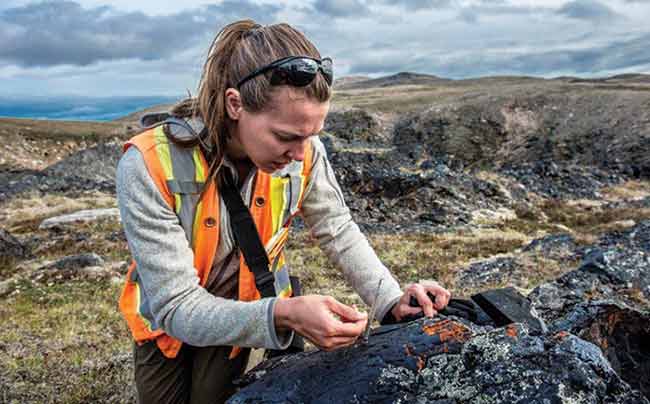
If you are a pre-college student, you can prepare for a career as a geologist by excelling in all of your classes. Science classes are vital, but every geologist uses math, writing, and other disciplines daily.
Many colleges offer geology courses or programs if you consider attending college or graduate school. Visit a college’s website that offers a geology degree, contact the geology department, express your interest, and plan to visit the campus. Don’t be afraid. Good institutions and faculty want to hear from prospective students.
FAQS: What do geologists do
Geology is a great field to explore. Here are the answers to some frequently asked questions about what do geologists do:
1. What do geologists do?
What do geologists do: Usually, on a day-to-day basis, geologists use equipment to conduct scientific experiments and test materials. They record and analyze their findings to conclude historical, present, or future geological occurrences. Depending on their role, they may have various other duties.
While geologists examine earth elements, they also complete many other scientific tasks. Here are some typical geologist duties:
- Develop ideas and proposals for research projects
- Collect material samples in the field and conduct laboratory tests on them
- Survey land areas and develop geological maps, diagrams, and charts
- Analyze photographs, mineral samples, and other data to find reservoirs of natural resources
- Conduct research and prepare scientific reports and presentations on findings
- Collaborate with other scientists and professionals, such as geographers, cartographers, drillers, engineers, and architects
- Contribute information to climate change discussions and provide suggestions to reduce human environmental impact
- Monitor, assess, and predict natural disasters such as earthquakes, volcanic eruptions, landslides, and tsunamis.
2. What is an example of a geologist?
What geologists do: Geologists can also perform different roles and study particular topics. Here are 10 examples of types of geologists and their typical duties:
- Geological technologist: conducts direct surveys of oil and mineral reservoirs.
- Engineering geologist: advises construction teams on site selection and natural conditions for a construction project.
- Geological technician: conducts geological surveys and environmental audits.
- Geochemist: analyses the chemical properties of rocks, minerals, and other earth materials
- Seismologist: investigates the causes and patterns of earthquakes
- Geoscientist: analyses geophysical, geochemical, and geological data to understand the Earth’s subsurface.
- Hydrogeologist: examines how earth structures impact groundwater movement and quality
- Volcanologist: studies volcanic eruptions and magma
- Planetary geologists compare Earth’s geology to other planets, such as Mars and the moon.
- Geophysicist: explores phenomena such as magnetics, gravity, and seismic activity.
3. What do geologists do? Do geologists study rocks?
What do geologists do: Geologists study the way rocks, rock formations, minerals, and other earth materials morph over time. They also study natural resources like water and oil and human impact on climates, plants, and animals. In addition, geologists may work with palaeontologists to investigate fossils and learn about ancient life forms.
4. Is a geologist job a good career?
What do geologists do: A geologist job can be a great, rewarding career for many people who enjoy earth science. Those in this position can learn about natural materials, environmental events, and history. They may work with other interesting professionals, such as archaeologists, palaeontologists, or oceanographers. In addition, geologists may travel worldwide to complete their studies, exposing them to new friends and memorable experiences.
5. Is a geologist a scientist?
What do geologists do: A geologist is a type of scientist who conducts research and experiments and form hypotheses about the physical world. Scientists study the properties of unique elements to gain knowledge and understanding.
6. What are the Job options related to a geology degree?
- Environmental geology is the most rapidly expanding branch of geology. Environmental geologists investigate environmental threats and devise solutions to environmental problems. The topics covered include flooding, pollution, natural disasters, and urban and sustainable development.
- Hydrogeology is one of the most extensive fields of geology. Hydrogeologists examine the movement of water via streams and rocks. Hydrogeologists frequently strive to maximize water availability while limiting pollution dispersion.
- Palaeontology is a fascinating branch of geology that studies life throughout Earth’s history. Palaeontologists study the interactions between animals and their environments, how organisms adapt to environmental changes and their evolutionary relationships. Palaeontologists help us understand how life has evolved and will continue to evolve in the face of global climate change.
- Marine geology is a fascinating subject. Marine geologists investigate the interplay between geology, marine life, and oceanography. Consider a job that requires you to spend time on beaches, boats, and submersibles.
- Planetary geology is a growing science that studies meteor craters, volcanism on distant worlds, probable life on Jupiter’s and Saturn’s frozen moons, and planet and moon histories.
- Economic geology is a broad and profitable field. Economic geologists look for good sources of oil, gas, and minerals, and they figure out how to get those valuables out of the ground. Economic geologists conduct investigations, including various facets of geology, and work worldwide.
- Petroleum geology is a vast and profitable field. Petroleum geologists discover oil and gas deposits and extensively study ocean sediment deposition, rock folding and faulting, and Earth’s history. This field connects all areas of geology.
- Palaeoclimatology and Paleoceanography are the two most important fields of geology because they reveal how the Earth may react to global climate change. We can better plan for the future and mitigate the effects of global climate change if we understand how the Earth’s temperature and oceans have changed over time.
- Geomorphology is the study of the processes that form the Earth’s surface. Geomorphologists study how rivers, landslides, glaciers, and wind shape the Earth’s surface. They work in locales as diverse as the Himalayan Mountains, Antarctica, and South American tropical jungles.
- Engineering geology is another important and lucrative field. Engineering geologists investigate the elements influencing constructed structures and specific risks such as landslides. Engineering geologists can help create highways, dams, buildings, etc. Many other fields of geology study caves, fossils, volcanoes, glaciers, earthquakes, geophysics, rock and water chemistry, and minerals.
Final words: What do geologists do
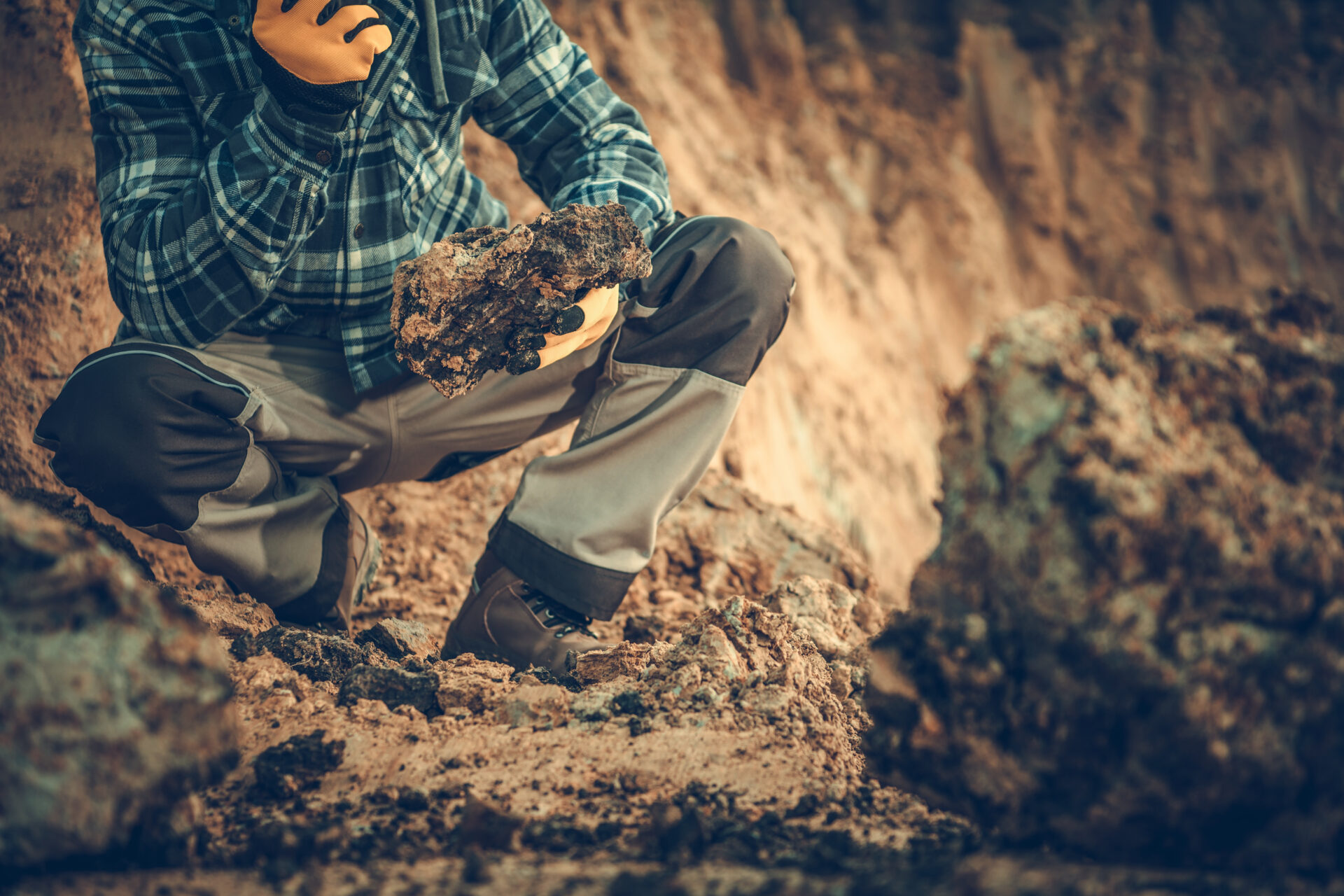
What do geologists do? Geologists are scientists and engineers researching the Earth’s landscape and its physical, chemical, and biological properties. This is performed by gathering data in the field and analyzing it in the laboratory.
They may also be involved in creating new geologic maps, defending the geologic rights of land ownership, predicting the impacts of natural disasters such as landslides or earthquakes, or constructing dams to protect populations from flooding.
Geology may be an interesting and enjoyable career for people who appreciate the sciences and being outside, especially if they are prepared to commit themselves to a sometimes broad field of study.
Many colleges offer geology courses or programs if you consider attending college or graduate school.

